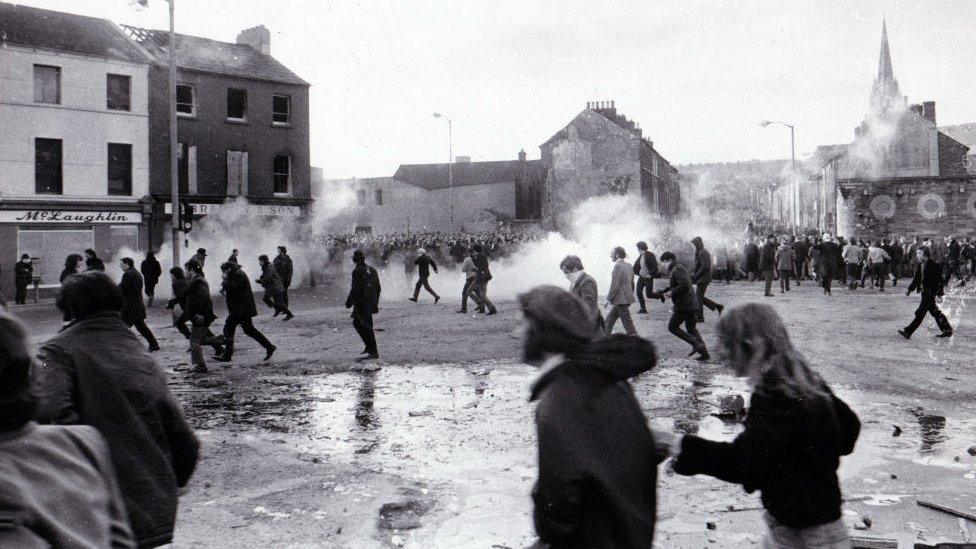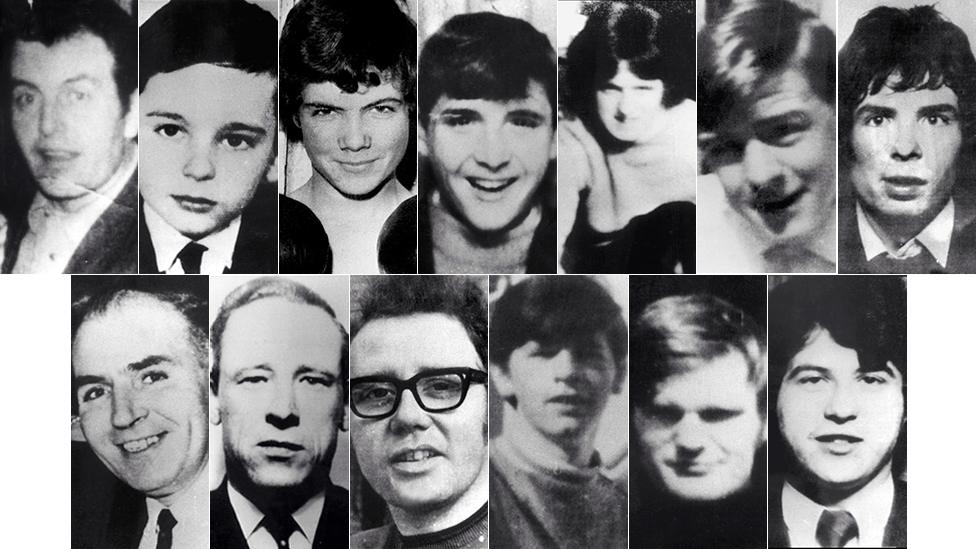Why did prosecutors drop cases against ex-soldiers?
- Published

The decisions to discontinue the murder cases against veterans known as Soldier F and Soldier B centre on statements from many years ago.
The Public Prosecution Service (PPS) revisited this key evidence in recent weeks.
Reviews followed the collapse of the Joe McCann murder trial when statements by Soldier A and Soldier C were ruled inadmissible and they were acquitted.
For the PPS, it presented a knock-on problem.
In the Joe McCann case, the judge decided statements by the former soldiers could not be used as evidence.
When interviewed in 1972, they admitted shooting Mr McCann, a member of the Official IRA, but they were not cautioned and had no access to legal advice.
In 2010, they were re-interviewed by the police Historical Enquiries Team (HET), but they were not under arrest nor was any mention made that they were under suspicion for murder.
Their 1972 statements were read into the record also and this, claimed the PPS, made them admissible.
What was Bloody Sunday?
But the judge decided otherwise.
According to the PPS, the Soldier B and Soldier F cases display "related features".
In the case of Soldier B, the crucial bit of evidence was a written statement he gave to the HET in 2006 in which he admitted firing the shots in "self-defence" which hit Daniel and Christopher Hegarty.
'Significant deficiency'
But he was not made aware he was suspected of an offence - nor was he told the purpose of the interview was to obtain evidence.
In light of what happened in the trial of Soldiers A and C, the PPS decided this is now a "significant deficiency that tainted" Soldier B's statement.
Without it, there was no other evidence, such as ballistics, relating to the discharge of Soldier B's weapon.
Soldier B's statement from 1972 was also inadmissible as having been made without caution, but it was not going to be relied upon anyway.
When it came to Soldier F, the parallels are less direct.
Changed view
Again, his original statements from 1972 were made without the benefit of a caution or legal advice.
But up to now, prosecutors had felt statements made in the same circumstances by other soldiers identifying him as firing shots could be admitted as "hearsay evidence" come his trial.
Their view has now changed.
"The stance taken by the court in A and C demonstrated in clear terms that compelled statements are regarded as legally flawed and evidentially diminished," the PPS stated in an 11-page document explaining things.
"It was concluded there was no reasonable prospect of a court acceding to an application to admit as hearsay evidence the 1972 compelled statements."
Two other prosecutions involving retired soldiers were also reviewed.
But they are proceeding as planned.
Denis Hutchings is facing attempted murder charges in respect of the fatal shooting of John Pat Cunningham near Benburb in Tyrone in 1974.
David Holden is charged with manslaughter over the death of Aidan McAnespie in Aughnacloy in Tyrone in 1988.
Related topics
- Published2 July 2021
